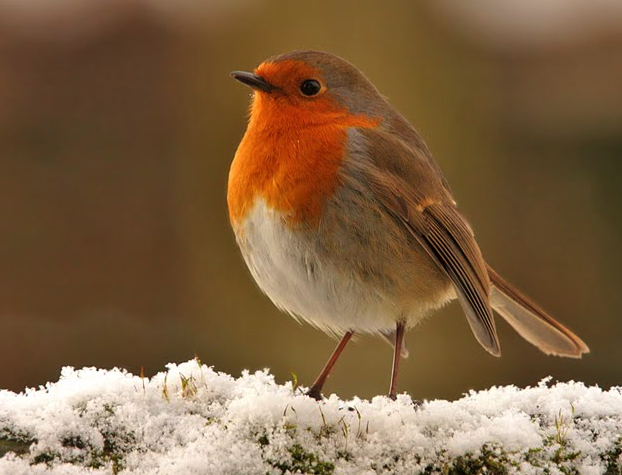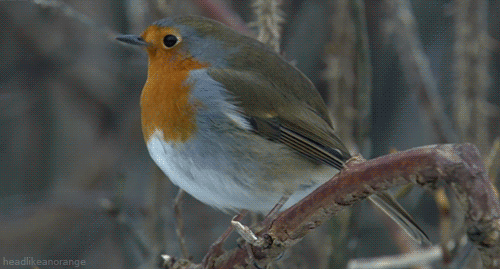Noise pollution and street lights are affecting the song of the urban robin

They are a creature that is synonymous with the festive season – but the song and behaviour of urban Robins is being reportedly affected by sound and noise pollution.
That’s according to researchers at Southampton University, who studied whether the quality of robin territory was directly affected by its proximity to road noise and night-time lighting in an city car park.
They set up a taxidermy robin and played a recording of a robin’s song in different territories around a park, and found that the strength of the response call was directly affected by the proximity to road noise and city lights.

The response given from robins in shaded areas was considered to be far more powerful than the birds situated close by to busy traffic and pollution from street lights.
Describing the findings, lead researcher Frances Mullany told the BBC: ‘Artificial night-time lighting and more daytime noise resulted in lower quality robin territory.’
Now, Ms Mullany hopes to study the impact of sounds and lighting on the health of the birds – in a bid to create urban spaces that are suitable for both humans and wildlife.
MORE: A pair of conjoined twins have been reunited for the first time after they were separated last week
MORE: Search begins for child who sent dead father a heartbreaking letter by balloon
She added: ‘Perhaps we can take these factors into account when we’re thinking about lighting plans and road traffic.’
Elaborating on the findings, animal researcher Dr Davide Dominoni claimed that they provided ‘new insights’ into the effect of urban environments on birds.
He said: ‘It would be interesting to figure out whether these results are a consequence of noisy and bright territories being of less quality, or else the birds living there being more stressed and unable to defend their territories with success.’

 Yahoo News
Yahoo News 

